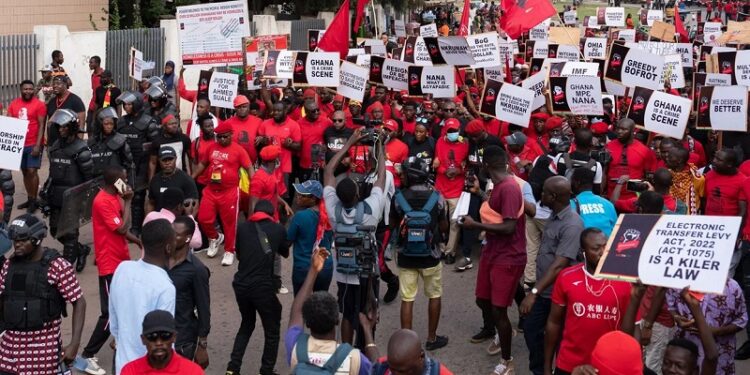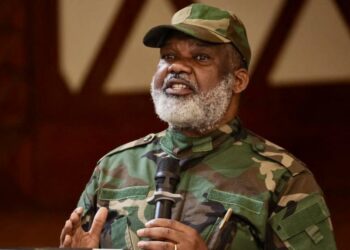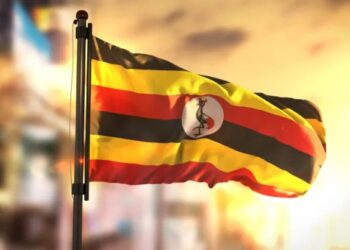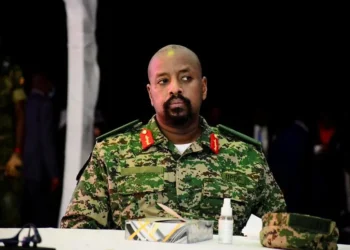With placards reading Ghana deserves better, we are tired of being voting machines or people equals power, protestors rallied in Accra.
The 3-day #Occupy Julorbi House campaign ended on Saturday (Sep. 23). Despite downpour and sun, demonstrators rallied for political change and economic reform.
“We are only being Ghanaians. All we need is food, water, clothes. We want to be able to take care of our mothers and our fathers, leading member and youth activist-democracy hub, Debora Enyonam Dabor told a crowd.
Protesters were bent on going to the seat of government, Golden Jubilee House, but the police barred their way.
The police initially responded with force on September 21, arresting over 50 protestors, including journalists.
“Let president Akuffo-Addo and the Ghana police service be told that anytime anyone resists peaceful change, violence change would occasion. We don’t want to engage in violence, but if they push us to the wall, we have no other option,” political activist Bernard Mornah said.
The protest has its roots in the “Fix the Country” movement, which emerged in 2021.
If Ghana’s government has not provided an official comment on the Occupy Jubilee House protest, its convener from Democracy Hub remained determined.
“At the end of this path there is prosperity and liberty,” Oliver Barker Vormawor promised.
“Liberty that the founding generation promised us. But we must not relent because the forces that seeks the downfall of this republic are alive and well. They control the institutions of government, they control the court, they control the police force, they control the military; but they cannot control the street.”
“We have shown them that when every institution of this country is captured and co-opted and has lost its voice, the street would speak loud and louder than any point in time…”
The campaign kicked off while President Nana Akufo-Addo was in New York for the UN General Assembly.
Ghana tops African countries with highest debt with the IMF.
Opposition warn president on Niger troop plans
Opposition lawmakers have raised alarms regarding the proposed Ecowas initiative to potentially employ military intervention in Niger, aimed at reinstating constitutional order within the nation.
Lawmakers from the opposition are urging President Nana Akufo-Addo of Ghana to immediately halt all preparations towards deploying Ghanaian soldiers for this endeavor.
Samuel Okudzeto Ablakwa, a member of the parliament’s foreign affairs committee, conveyed to the BBC that the Ghanaian Parliament has not yet engaged in discussions concerning this matter, unlike other nations that have had the opportunity to deliberate on these issues and pass relevant resolutions.
He emphasized, “President Akufo-Addo lacks a mandate from the Ghanaian people in this regard… We firmly believe that resorting to military intervention is not the optimal course of action.”
Members of the minority party in Ghana’s parliament advocate for diplomacy and constructive dialogue as the preferred avenues for resolution.
Mr. Ablakwa articulated, “Our valiant Ghanaian soldiers should be kept removed from the impending risks of violence and the escalating geopolitical tensions, which could lead to extensive destabilization in an already precarious region.”
Minority lawmakers in Ghana maintain that the nation’s limited resources should be channeled towards addressing the country’s economic struggles, especially in the wake of a $3 billion (£2.4 billion) International Monetary Fund (IMF) bailout. They contend that Ghana should avoid becoming embroiled in a “proxy geopolitical confrontation.”



























































